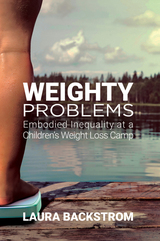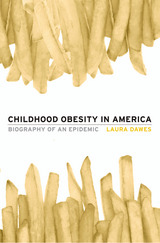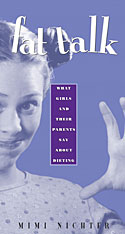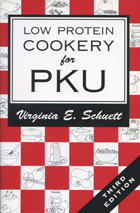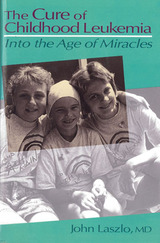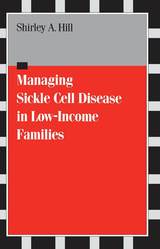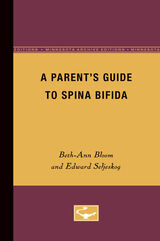Low Protein Cookery for Phenylketonuria
University of Wisconsin Press, 1997
Paper: 978-0-299-15384-7
Library of Congress Classification RJ399.P5S38 1997
Dewey Decimal Classification 641.5638
Paper: 978-0-299-15384-7
Library of Congress Classification RJ399.P5S38 1997
Dewey Decimal Classification 641.5638
ABOUT THIS BOOK | AUTHOR BIOGRAPHY | REVIEWS
ABOUT THIS BOOK
Much more than a cookbook, Low Protein Cookery for Phenylketonuria (PKU) is a practical and easy-to-use guide for those who must maintain a protein-restricted diet for treatment of PKU or similar inherited diseases of protein metabolism. It contains hundreds of helpful suggestions for managing the diet. This third edition of Low Protein Cookery for PKU appears exactly twenty years after the original 1977 publication and includes the 450-plus recipes and the hints from the 1988 second edition that have been used and enjoyed by families for nearly a decade.
The major new feature of the third edition is entirely new nutrient calculations. The available food supply has changed significantly in the past fifteen years, and nutrient information is much better now. The nutrient calculations in this edition of the cookbook are based on the updated 1995 Low Protein Food List for PKU compiled by the author, which is the most widely used food list for the PKU diet in the United States. Some of the changes in nutrient values are subtle, others more significant; all reflect the best information currently available.
Low Protein Cookery for PKU offers recipes that appeal to a wide range of ages, suit a wide range of individual diet requirements, and facilitate integration of the diet into normal family eating routines. Many of the recipes are suitable for the entire family; others include instructions for adapting the recipe to suit the needs of family members not on the diet, or are accompanied by recipes for the preparation of similar non-diet items. The recipes provide gram weights when appropriate, for greater accuracy in preparing the recipes and in maintaining the diet.
The major new feature of the third edition is entirely new nutrient calculations. The available food supply has changed significantly in the past fifteen years, and nutrient information is much better now. The nutrient calculations in this edition of the cookbook are based on the updated 1995 Low Protein Food List for PKU compiled by the author, which is the most widely used food list for the PKU diet in the United States. Some of the changes in nutrient values are subtle, others more significant; all reflect the best information currently available.
Low Protein Cookery for PKU offers recipes that appeal to a wide range of ages, suit a wide range of individual diet requirements, and facilitate integration of the diet into normal family eating routines. Many of the recipes are suitable for the entire family; others include instructions for adapting the recipe to suit the needs of family members not on the diet, or are accompanied by recipes for the preparation of similar non-diet items. The recipes provide gram weights when appropriate, for greater accuracy in preparing the recipes and in maintaining the diet.
See other books on: Diet & Nutrition | Diet therapy | Health & Fitness | Nutrition | Recipes
See other titles from University of Wisconsin Press











